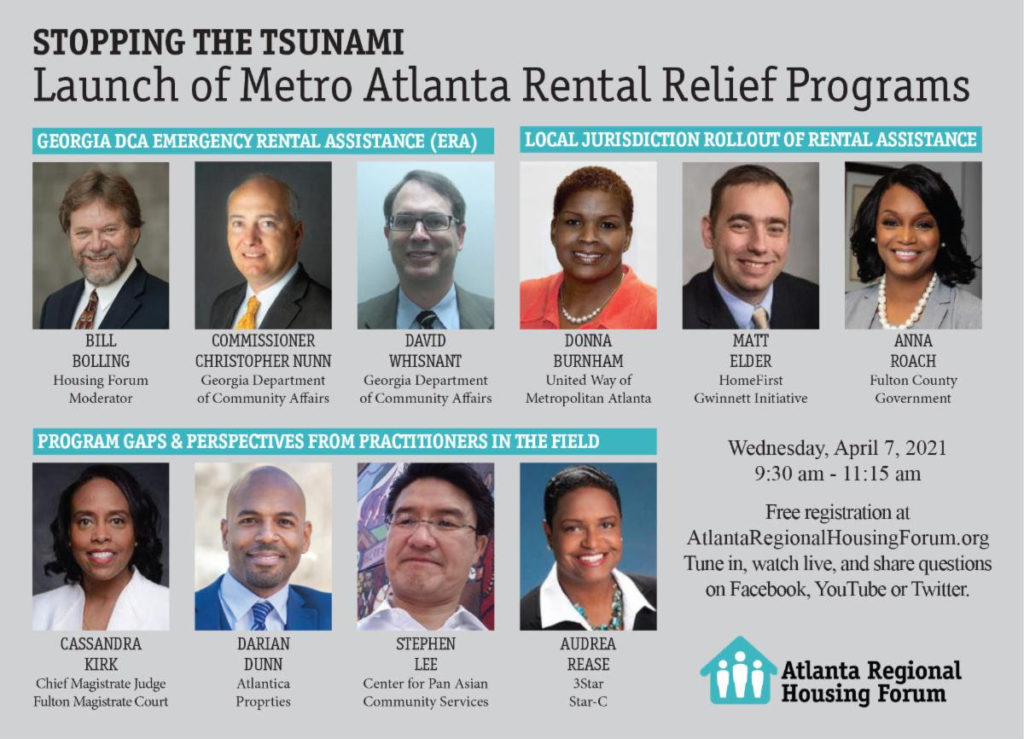STOPPING THE TSUNAMI: Launch of Metro Atlanta Rental Relief Programs
Register now to attend the April 7th Atlanta Regional Housing Forum!

In February, the U.S. Department of Treasury began implementing The Emergency Rental Assistance (ERA) program, $25 billion to assist households that are unable to pay rent and utilities due to the COVID-19 pandemic. The funds are provided directly to States.
Georgia’s allocation is $710 million – $552 million directly to the state to disperse in all counties and $158 million to twelve jurisdictions with a population greater than 200,000.
Those seeking funds must meet Federally mandated eligibility requirements. An “eligible household” is defined as a renter household in which at least one or more individuals meets the following criteria:
- Qualifies for unemployment or has experienced a reduction in household income, incurred significant costs, or experienced a financial hardship due to COVID-19;
- Demonstrates a risk of experiencing homelessness or housing instability; and
- Has a household income at or below 80 percent of the area median.
The Department of Community Affairs (DCA), the state’s agency dedicated to housing programs, will administer its funds through its online portal https://georgiarentalassistance.ga.gov.
Jurisdictions receiving direct allocations represent a mixed bag of deployment approaches and timelines. DeKalb County has already launched and expended its funds. Fulton County launched on March 1. The City of Atlanta, Gwinnett County, Cherokee County, and others anticipate launching their programs in April.
While the Federal regulations allow the funds to be used for rent, rent arrears, utilities, and utility arrears, each jurisdiction can set its amount of support.
How much support can be provided to each household? How far back can the funds be applied? What happens when funds are expended in jurisdictions receiving direct allocations?
As with any Federal program of this magnitude, there are always gaps in coverage identified during the process. How will these programs engage landlords, local nonprofits, and the courts to address operational efficiencies and identified gaps?
An additional $25 billion is earmarked for rental assistance in the proposed recovery plan currently working its way through Congress. Will these combined funds create much-needed housing stability as the nation recovers from the crisis? And what role will the private sector and philanthropy continue to play in recovery efforts?
Join on April 7 for a discussion on these significant developments with officials from Georgia DCA, landlords, local nonprofit organizations, and more. Register now here!
